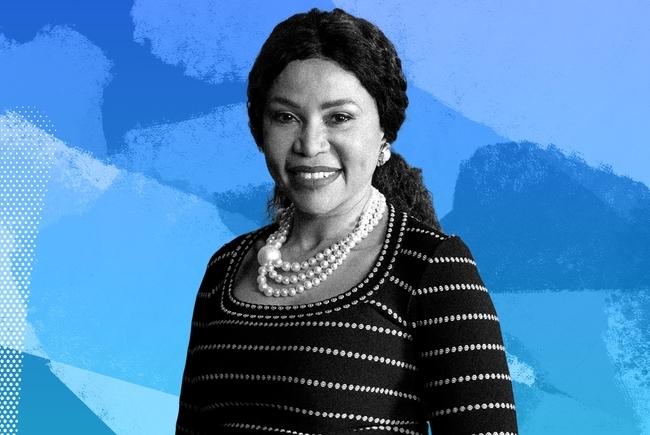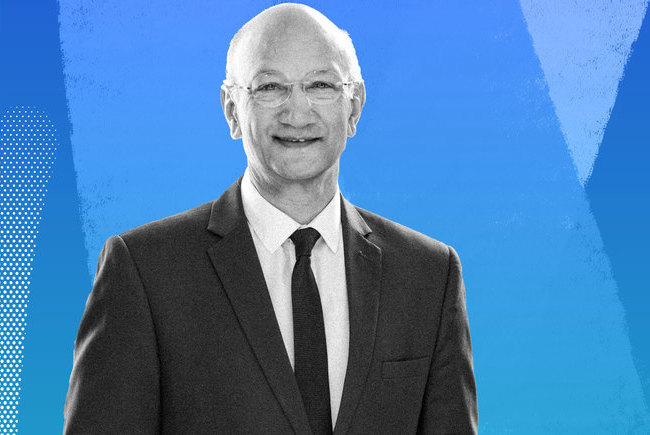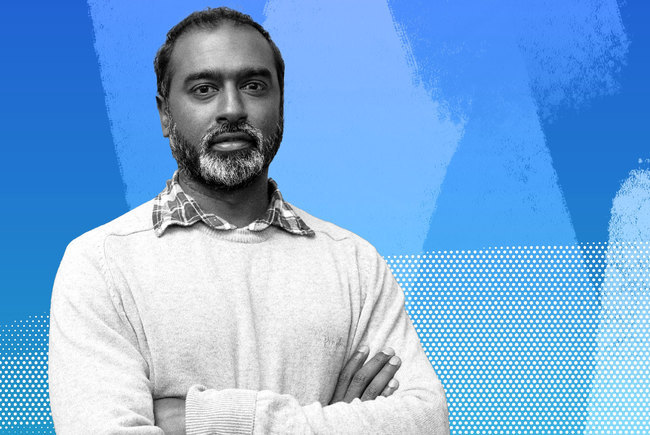Transformation
27 September 2024 Read time >10 min.
During 2023, a humanising praxis, which is a way of being and doing in the world that is informed by the philosophy of Ubuntu, was embedded in UCT’s transformation framework. Key to this was the continuation of the Anti-racism Conversation Series and the Humanising Think Tank Series, with various UCT scholars engaging the university community. Choosing a humanising praxis, there are many lessons the University of Cape Town (UCT) learned from the six years it took to restore the skeletal remains of nine Khoi and San people to their final resting place near their descendants and relatives in Sutherland. The reinterment of the skeletons in 2023 concluded a process of recognition, connection and correction that began in 2017, when we realised that these skeletons had been obtained unethically by UCT’s Human Skeletal Repository almost a century earlier.
The analysis of these remains, at the request of the family members, revealed details about the lives of the group after the invasion of white colonial settlers into the land where they hunted and lived. This valuable information helped us to unearth and better understand the history and culture of indigenous Africans.
Language is another avenue for connecting with Africa’s past, present and future. Also, in 2023, UCT launched our KiSwahili Studies programme, one year after the African Union adopted the language as an official working language for the continent.
We also introduced the Mechanical Engineering isiXhosa Glossary as part of UCT’s Multilingualism Education Project, which aims to produce multilingual glossaries for the different disciplines at UCT, and to build representative collections for South Africa’s indigenous languages.
Work of this kind opens the way for African science and knowledges broadly, to participate in creating solutions to the wicked problems the world is facing, even as we address these problems in our own backyard.
One such global catastrophe is the persistent rise of sexual and gender-based violence (SGBV). To help fight this scourge on UCT campuses, we introduced Kwanele, a survivor-centred digital tool that allows for SGBV incidents to be reported without fear of persecution, shaming or other barriers that often deter survivors from coming forward. It also allows us to track and help counter sexual misconduct on UCT campuses, collect valuable data and provide training on various aspects of SGBV, including consent, healthy relationships, and bystander intervention.
The progress we made during 2023 paves the way for UCT to continue to renew our view of ourselves in context; and to do so as lifelong students, global citizens and leaders, promoting our identity as Africans in authentic ways.
Professor Elelwani Ramugondo
Deputy Vice-Chancellor
Transformation, Student Affairs & Social Responsiveness
100UP Saturday Summer School: a lens on possibilities for disadvantaged learners
To date, the University of Cape Town’s (UCT) pioneering 100UP programme has seen 619 learners from Khayelitsha, Philippi and Mitchells Plain graduate. Of these, 105 have enrolled in postgraduate studies. The knock-on effects of the intervention for these individuals and their communities are “incalculable”, said Dr Medeé Rall. These additional lectures introduce 100UP learners to the UCT campus, its lecturers and different fields of study and are designed to stretch the learners’ sense of possibilities and agency.
Towards transformation in higher education
The University of Cape Town (UCT), in partnership with the IE University, hosted the 13th annual Reinventing Higher Education (RHE) conference at the newly opened Hasso Plattner d-school Afrika from 5 to 7 March. Launched in 2010 at IE University, the RHE symposium aims to provide a platform where university administrators, policy makers, entrepreneurs and top businesspeople, academics, student representatives and media experts can meet to discuss the past, present and future of higher education. Themed “New Humans, New Society, New Higher Education”, the 2023 symposium focused on addressing key questions around the values behind continual and rapid change within the higher education sector.
Using land to understand human rights violations in Palestine and SA
The University of Cape Town’s (UCT) Professor Tomà Berlanda, after being awarded funds to work on a creative research project to reflect on the issue of land as a lens to understand human rights violations in South Africa and Palestine, has concluded the work in a 96-page book titled Landwalks: Across Palestine and South Africa. The book is published in both Arabic and English, and according to Professor Berlanda, the material in the publication demonstrates that partnerships were key in ensuring the success of the book. Through UCT’s relationship with the Palestinian Museum and the Sharjah Art Foundation’s request “for a project that will contribute to the production of original ideas and critical thinking and will take an experimental and innovative approach to publishing in the broader discourse on art and culture”, Berlanda and collaborators began in 2021.
Disability and Islam: PhD examines unconscious exclusion, burden of responsibility
Shaheed Moussa* attended Friday congregational prayers regularly at his local mosque – until he became a wheelchair user. But after a series of incidents left him feeling dehumanised and invisible, he stopped participating in the afternoon congregational prayer. As a Muslim, praying is an obligatory part of daily life, Fridays considered sacred days for worship. And Shaheed wanted to fulfil this obligation as part of the Muslim community, the Ummah. First it was the unnavigable, crumbling ramp into the building. Even after he’d approached the trustees for help, it was repaired only after a senior trustee underwent a hip replacement. But even inside, Shaheed’s path was blocked: first by scattered shoes in the ablution area and then by a request not to enter the prayer room. His wheels were considered unclean.
Ouma Katrina Esau: Reviving a language, one child at a time
The University of Cape Town (UCT) bestowed an honorary doctorate on Her Excellency ǂXuu Katrina Esau. Affectionately known as Ouma Katrina, the nonagenarian is the last remaining fluent speaker of the critically endangered N|uu language and one of South Africa’s living legends. Thought to be extinct until fairly recently, N|uu – an ancient San language from the Tuu family – re-emerged in the Northern Cape during the late 1990s when people who were able to speak the language fluently were encouraged to contribute to its survival and revival. At the time, there was a group of about 20 older people who could speak the language fluently, among them Ouma Katrina and her siblings. Sadly, Ouma Katrina is the last of the group still alive. She has, however, made it her life’s mission to preserve the language for the future by educating young people from her community in a tiny classroom at her house in Rosedale, outside Upington in the Northern Cape.
Space, place and culture: Lessons from KwaLanga
When the late unionist and community activist Mama Zora Mehlomakulu called Carin Smuts and Helen Lieberman to a meeting in KwaLanga in 1998, Smuts had no inkling how it would influence her life and work. In KwaLanga’s centenary year, the University of Cape Town (UCT) alumnus recalled how that meeting changed her design thinking – and created a model for community participation. Both UCT trained, Smuts was a young architect and Lieberman a speech therapist and founder of Ikamva Labantu (Future of our Nation), a non-government organisation (NGO) she’d started from Smuts’ offices in Vredehoek. It offered black South Africans access to education and social services. Mama Zora was known as “the backbone of KwaLanga”. Born in Cape Town’s oldest township in 1940, she was tough and straight talking, having cut her teeth early in the country’s fledgling trade union movement. She knew poverty and squalor. But she was connected, and she understood what her community needed.
New research on Sutherland Nine remains digs deeper into their lives, deaths
Newly published research by a multidisciplinary research team from the University of Cape Town (UCT) and other partner institutions has dug deeper into and revealed insights into the lives of the Sutherland Nine, who were donated unethically to UCT in the 1920s. The team, led by Associate Professor Victoria Gibbon, produced a range of community-driven historical, archaeological and analytical (osteobiographic, craniofacial, ancient DNA, stable isotope) studies to document, as far as possible, the lives and deaths of the Sutherland Nine. The research, titled “Confronting historical legacies of biological anthropology in South Africa – Restitution, redress and community-centered science: the Sutherland Nine”, was published in PLOS One on 24 May 2023.
UCT to house South Africa’s first youth violence-prevention centre
University of Cape Town (UCT) student and community activist Zukile Ntentema has set the wheels in motion to establish the first youth violence-prevention centre on home soil. This example of an anti-crime initiative successfully adopted in the Global North will be housed at UCT, and will support government, law enforcement agencies and civil society to effectively monitor crime trends in the Mother City, and to inform new, targeted crime prevention strategies aimed at the youth. With the help of volunteers, the centre will develop Afrocentric, evidence-based strategies and interventions to fight crime and help make the city a safer place. Ntentema has already discussed his idea with UCT’s interim vice-chancellor, Emeritus Professor Daya Reddy, who has given him the green light to start conversations to establish the centre at UCT. The university’s deputy vice-chancellor for Transformation, Student Affairs and Social Responsiveness, Professor Elelwani Ramugondo, has also committed to supporting him throughout the programme’s multiple stages.
Fighting coloniality for humanisation
The University of Cape Town’s (UCT) Office of Inclusivity & Change (OIC) hosted the inaugural session of the “Transformation: A Humanising Praxis Think Tank Series” at the Hasso Plattner School of Design Thinking (d-school) Afrika on 18 July. The event explored the need to challenge oppressive systems and decolonise knowledge to realise human dignity. In her opening address, Deputy Vice-Chancellor: Transformation, Student Affairs and Social Responsiveness Professor Elelwani Ramugondo outlined the motivation behind the theme as well as the unique opportunities that spaces like think tanks bring to academia.
Thumbs up: UCT welcomes Sign Language as SA’s 12th official language
The University of Cape Town’s (UCT) Disability Service, Disability Studies unit and its Multilingualism Education Project (MEP) have welcomed the recent announcement that South African Sign Language (SASL) has become the country’s 12th official language. The agreement was signed by President Cyril Ramaphosa at the Union Buildings in Tshwane on 19 July. This followed the National Assembly approval in May that Section 6 of the Constitution be amended to include SASL as an official language to promote the rights of persons who are Deaf and hard of hearing. South Africa joins Kenya, Zimbabwe and Uganda as the fourth African country to recognise Sign Language as an official language.
 This work is licensed under a Creative Commons Attribution-NoDerivatives 4.0 International License.
This work is licensed under a Creative Commons Attribution-NoDerivatives 4.0 International License.
Please view the republishing articles page for more information.
Annual reviews
Year in Review 2023
27 Sep 2024
Year in Review 2023

There are different ways to define the University of Cape Town (UCT).
27 Sep 2024 - 2 min read
By its very nature, the university sector is a place of transition.
27 Sep 2024 - 4 min read
In a world whose future relies increasingly on international co-operation and global thinking, developing and maintaining strong partnerships with institutions in other countries can be a game changer for research that addresses the wicked problems that have become household words in the last few years.
27 Sep 2024 - >10 min read
Previous Editions




The Newsroom and Publications unit releases an annual report, which is a review of activities on campus during the previous year. It spans nearly all aspects of UCT life; and includes reports from senior executives on issues such as governance, teaching and learning, research, social responsiveness, transformation and employment equity. Each year the report illustrates clearly why UCT is held in such high regard in South Africa, Africa and across the globe.

























